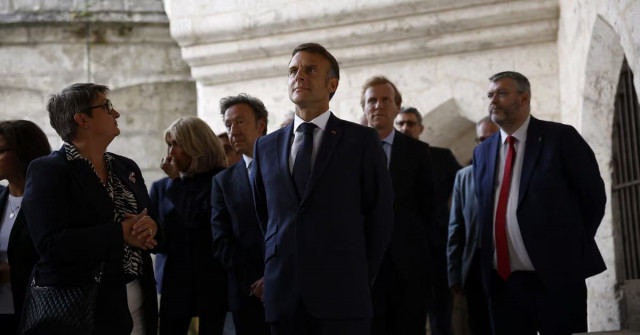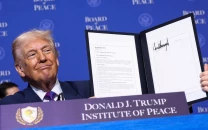France unveils new govt after snap elections deliver hung parliament
PM Barnier forms cabinet, aiming to balance right-wing and centrist factions, facing tough negotiations ahead

France revealed a new government on Saturday, aiming to balance right-wing and centrist factions, as Prime Minister Michel Barnier seeks to break political deadlock following snap elections that resulted in a hung parliament.
After 2.5 months of political uncertainty caused by centrist President Emmanuel Macron’s unexpected decision to call early elections, Barnier has assembled a cabinet intended to gain cross-party backing in the divided parliament.
Despite a lack of political heavyweights, Barnier's cabinet includes Bruno Retailleau, a leader from the conservative party of former President Nicolas Sarkozy. Retailleau secured the coveted position of interior minister in exchange for his party’s parliamentary support. However, reflecting the government's fragility, the crucial role of finance minister was assigned to relatively unknown 33-year-old Antoine Armand from Macron's party, after more prominent figures declined the post.
Armand, along with new budget minister Laurent Saint-Martin, faces the challenging task of drafting a budget before January as France struggles with a growing deficit. In an interview with the Journal du Dimanche, Armand emphasised the need to cut public spending and make it more efficient, stating that raising taxes alone would not solve the issue.
Despite including 10 politicians from Barnier's conservative Republicans (LR) party, Macron retained several outgoing ministers in key positions, with only one left-wing politician, Didier Migaud, joining as justice minister. Jean-Noël Barrot, the former Europe minister, was promoted to foreign minister, while Sébastien Lecornu remained defence minister.
Barnier, the European Union’s former Brexit negotiator and a 73-year-old political veteran, was appointed prime minister earlier in the month. However, the extended negotiations required to form a cabinet highlight the significant challenges ahead. The centrist and conservative alliance must rely on additional support, particularly from Marine Le Pen’s far-right National Rally (RN), to retain power and pass legislation in the deeply fractured parliament.
Eurointelligence analysts described the new government as a "de facto minority administration," warning that ministers would need to negotiate both within the cabinet and with opposition parties to get bills passed, likely requiring further concessions.
While the RN has given tacit support to Barnier's leadership, it reserved the right to withdraw if its concerns over immigration, security, and other issues are not addressed. Meanwhile, Mathilde Panot, leader of the hard-left LFI group, expressed frustration on TF1, criticising the cabinet as merely recycling election losers.



















COMMENTS
Comments are moderated and generally will be posted if they are on-topic and not abusive.
For more information, please see our Comments FAQ